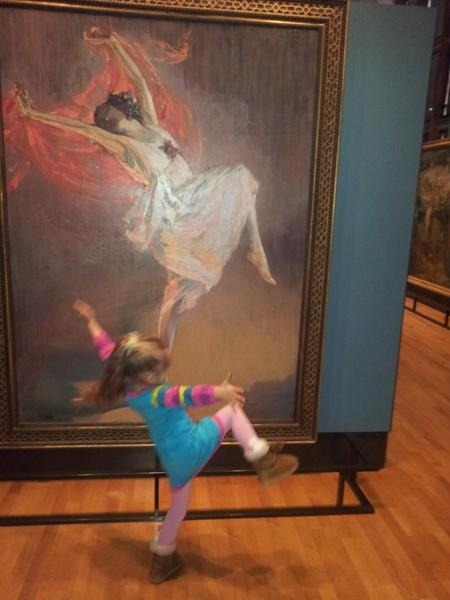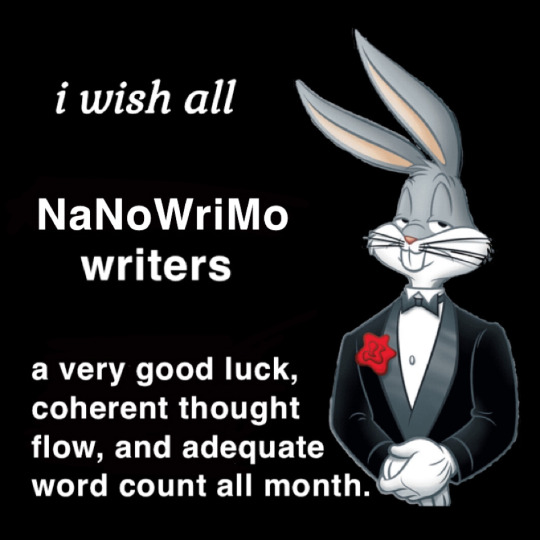Art by me, reblogs of stuff I like, and currently obsessing over ClassicaLoid
Don't wanna be here? Send us removal request.
Text
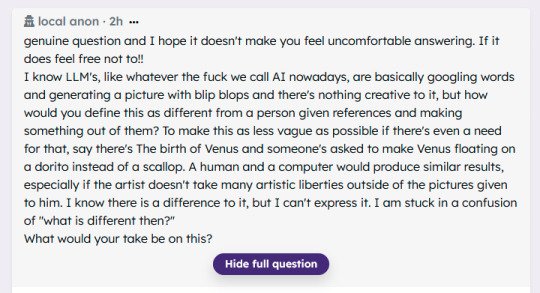
(an ask from my retrsopring)
Apologies in advance, this is going to sound harsh.
'What is different then?' It's not complicated. A computer is not a human. A computer can't think. A computer can't feel. A computer can't experience. A computer can't learn. To equate a computer's ability to copy and regurgitate data to a human's ability to communicate through art is so existentially offensive as a premise that it's inherently bad faith, even if you yourself aren't asking it in bad faith. You may as well be asking me what's the difference between a plagiarist and a writer, because if that difference between those two things is even entertained as a debate, then either you're being made an idiot or you are indulging idiots. At worst, both.
No one seems to debate this when it comes to the idea of, say, athletes. A machine can ostensibly produce the same results as a basketball player, throw a ball in the hoop and score points against other machines. But that's patently ridiculous, isn't it? People don't watch sports for the concept of throwing balls in hoops, people watch sports for human spectacle and physical ability.
It's a mistake to think art is only about the results, that's capitalist thinking in that only the end conclusion of the process has any value (fiscally or otherwise). Propaganda made by mediocre people who think being an 'idea guy' is the only important part of any project. Art is about ability, it's about expression, it's about making history. It's about human labor and craftsmanship. It's about being alive.

That a creator who is too lazy to respect their own art doesn't have the imagination to be good at it, and also they hate the planet and want humanity to die, ostensibly.
1K notes
·
View notes
Text
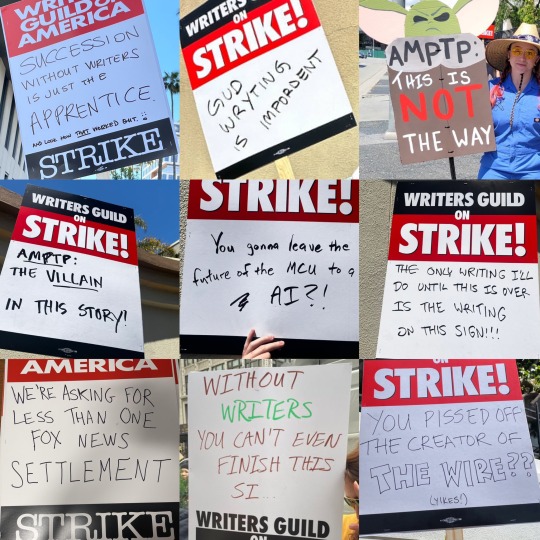
It shouldn’t be surprising that writers have some of the best strike signs in existence
59K notes
·
View notes
Video
THIS IS SO GOOD!! GO WATCH IT NOW!!! ❤❤❤
youtube
LACKADAISY (Pilot)
Starts in five minutes! We hope you’ll watch and enjoy! And if you feel like saying anything about it online or sharing the link, please use the #lackadaisy tag! The more exposure this gets, the more likely we’ll be able to make more!

11K notes
·
View notes
Text
IT’S NOT ‘PEEKED’ MY INTEREST
OR ‘PEAKED’
BUT PIQUED
‘PIQUED MY INTEREST’
THIS HAS BEEN A CAPSLOCK PSA
702K notes
·
View notes
Text
Good riddance to the Open Gaming License
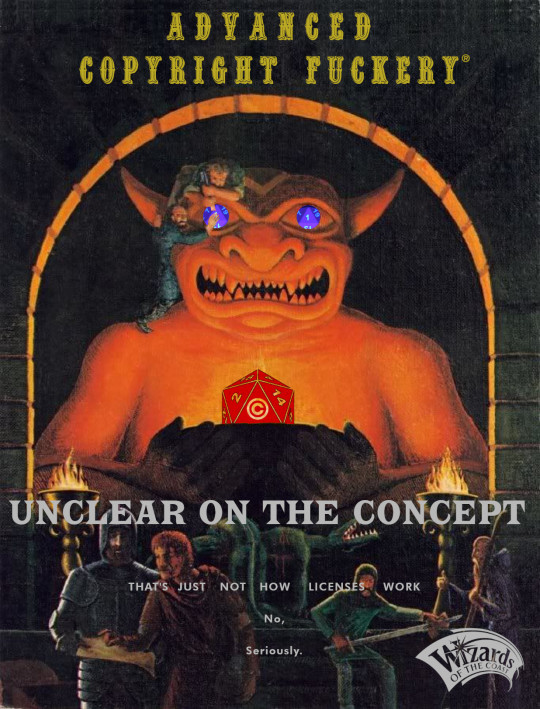
Last week, Gizmodo’s Linda Codega caught a fantastic scoop — a leaked report of Hasbro’s plan to revoke the decades-old Open Gaming License, which subsidiary Wizards Of the Coast promulgated as an allegedly open sandbox for people seeking to extend, remix or improve Dungeons and Dragons:
https://gizmodo.com/dnd-wizards-of-the-coast-ogl-1-1-open-gaming-license-1849950634
The report set off a shitstorm among D&D fans and the broader TTRPG community — not just because it was evidence of yet more enshittification of D&D by a faceless corporate monopolist, but because Hasbro was seemingly poised to take back the commons that RPG players and designers had built over decades, having taken WOTC and the OGL at their word.
Gamers were right to be worried. Giant companies love to rugpull their fans, tempting them into a commons with lofty promises of a system that we will all have a stake in, using the fans for unpaid creative labor, then enclosing the fans’ work and selling it back to them. It’s a tale as old as CDDB and Disgracenote:
https://en.wikipedia.org/wiki/CDDB#History
(Disclosure: I am a long-serving volunteer board-member for MetaBrainz, which maintains MusicBrainz, a free, open, community-managed and transparent alternative to Gracenote, explicitly designed to resist the kind of commons-stealing enclosure that led to the CDDB debacle.)
https://musicbrainz.org/
Free/open licenses were invented specifically to prevent this kind of fuckery. First there was the GPL and its successor software licenses, then Creative Commons and its own successors. One important factor in these licenses: they contain the word “irrevocable.” That means that if you build on licensed content, you don’t have to worry about having the license yanked out from under you later. It’s rugproof.
Now, the OGL does not contain the word “irrevocable.” Rather, the OGL is “perpetual.” To a layperson, these two terms may seem interchangeable, but this is one of those fine lawerly distinctions that trip up normies all the time. In lawyerspeak, a “perpetual” license is one whose revocation doesn’t come automatically after a certain time (unlike, say, a one-year car-lease, which automatically terminates at the end of the year). Unless a license is “irrevocable,” the licensor can terminate it whenever they want to.
This is exactly the kind of thing that trips up people who roll their own licenses, and people who trust those licenses. The OGL predates the Creative Commons licenses, but it neatly illustrates the problem with letting corporate lawyers — rather than public-interest nonprofits — unleash “open” licenses on an unsuspecting, legally unsophisticated audience.
The perpetual/irrevocable switcheroo is the least of the problems with the OGL. As Rob Bodine— an actual lawyer, as well as a dice lawyer — wrote back in 2019, the OGL is a grossly defective instrument that is significantly worse than useless.
https://gsllcblog.com/2019/08/26/part3ogl/
The issue lies with what the OGL actually licenses. Decades of copyright maximalism has convinced millions of people that anything you can imagine is “intellectual property,” and that this is indistinguishable from real property, which means that no one can use it without your permission.
The copyrightpilling of the world sets people up for all kinds of scams, because copyright just doesn’t work like that. This wholly erroneous view of copyright grooms normies to be suckers for every sharp grifter who comes along promising that everything imaginable is property-in-waiting (remember SpiceDAO?):
https://onezero.medium.com/crypto-copyright-bdf24f48bf99
Copyright is a lot more complex than “anything you can imagine is your property and that means no one else can use it.” For starters, copyright draws a fundamental distinction between ideas and expression. Copyright does not apply to ideas — the idea, say, of elves and dwarves and such running around a dungeon, killing monsters. That is emphatically not copyrightable.
Copyright also doesn’t cover abstract systems or methods — like, say, a game whose dice-tables follow well-established mathematical formulae to create a “balanced” system for combat and adventuring. Anyone can make one of these, including by copying, improving or modifying an existing one that someone else made. That’s what “uncopyrightable” means.
Finally, there are the exceptions and limitations to copyright — things that you are allowed to do with copyrighted work, without first seeking permission from the creator or copyright’s proprietor. The best-known exception is US law is fair use, a complex doctrine that is often incorrectly characterized as turning on “four factors” that determine whether a use is fair or not.
In reality, the four factors are a starting point that courts are allowed and encouraged to consider when determining the fairness of a use, but some of the most consequential fair use cases in Supreme Court history flunk one, several, or even all of the four factors (for example, the Betamax decision that legalized VCRs in 1984, which fails all four).
Beyond fair use, there are other exceptions and limitations, like the di minimis exemption that allows for incidental uses of tiny fragments of copyrighted work without permission, even if those uses are not fair use. Copyright, in other words, is “fact-intensive,” and there are many ways you can legally use a copyrighted work without a license.
Which brings me back to the OGL, and what, specifically, it licenses. The OGL is a license that only grants you permission to use the things that WOTC can’t copyright — “the game mechanic [including] the methods, procedures, processes and routines.” In other words, the OGL gives you permission to use things you don’t need permission to use.
But maybe the OGL grants you permission to use more things, beyond those things you’re allowed to use anyway? Nope. The OGL specifically exempts:
Product and product line names, logos and identifying marks including trade dress; artifacts; creatures characters; stories, storylines, plots, thematic elements, dialogue, incidents, language, artwork, symbols, designs, depictions, likenesses, formats, poses, concepts, themes and graphic, photographic and other visual or audio representations; names and descriptions of characters, spells, enchantments, personalities, teams, personas, likenesses and special abilities; places, locations, environments, creatures, equipment, magical or supernatural abilities or effects, logos, symbols, or graphic designs; and any other trademark or registered trademark…
Now, there are places where the uncopyrightable parts of D&D mingle with the copyrightable parts, and there’s a legal term for this: merger. Merger came up for gamers in 2018, when the provocateur Robert Hovden got the US Copyright Office to certify copyright in a Magic: The Gathering deck:
https://pluralistic.net/2021/08/14/angels-and-demons/#owning-culture
If you want to learn more about merger, you need to study up on Kregos and Eckes, which are beautifully explained in the “Open Intellectual Property Casebook,” a free resource created by Jennifer Jenkins and James Boyle:
https://web.law.duke.edu/cspd/openip/#q01
Jenkins and Boyle explicitly created their open casebook as an answer to another act of enclosure: a greedy textbook publisher cornered the market on IP textbook and charged every law student — and everyone curious about the law — $200 to learn about merger and other doctrines.
As EFF Senior Staff Attorney Kit Walsh writes in her must-read analysis of the OGL, this means “the only benefit that OGL offers, legally, is that you can copy verbatim some descriptions of some elements that otherwise might arguably rise to the level of copyrightability.”
https://www.eff.org/deeplinks/2023/01/beware-gifts-dragons-how-dds-open-gaming-license-may-have-become-trap-creators
But like I said, it’s not just that the OGL fails to give you rights — it actually takes away rights you already have to D&D. That’s because — as Walsh points out — fair use and the other copyright limitations and exceptions give you rights to use D&D content, but the OGL is a contract whereby you surrender those rights, promising only to use D&D stuff according to WOTC’s explicit wishes.
“For example, absent this agreement, you have a legal right to create a work using noncopyrightable elements of D&D or making fair use of copyrightable elements and to say that that work is compatible with Dungeons and Dragons. In many contexts you also have the right to use the logo to name the game (something called “nominative fair use” in trademark law). You can certainly use some of the language, concepts, themes, descriptions, and so forth. Accepting this license almost certainly means signing away rights to use these elements. Like Sauron’s rings of power, the gift of the OGL came with strings attached.”
And here’s where it starts to get interesting. Since the OGL launched in 2000, a huge proportion of game designers have agreed to its terms, tricked into signing away their rights. If Hasbro does go through with canceling the OGL, it will release those game designers from the shitty, deceptive OGL.
According to the leaks, the new OGL is even worse than the original versions — but you don’t have to take those terms! Notwithstanding the fact that the OGL says that “using…Open Game Content” means that you accede to the license terms, that is just not how contracts work.
Walsh: “Contracts require an offer, acceptance, and some kind of value in exchange, called ‘consideration.’ If you sell a game, you are inviting the reader to play it, full stop. Any additional obligations require more than a rote assertion.”
“For someone who wants to make a game that is similar mechanically to Dungeons and Dragons, and even announce that the game is compatible with Dungeons and Dragons, it has always been more advantageous as a matter of law to ignore the OGL.”
Walsh finishes her analysis by pointing to some good licenses, like the GPL and Creative Commons, “written to serve the interests of creative communities, rather than a corporation.” Many open communities — like the programmers who created GNU/Linux, or the music fans who created Musicbrainz, were formed after outrageous acts of enclosure by greedy corporations.
If you’re a game designer who was pissed off because the OGL was getting ganked — and if you’re even more pissed off now that you’ve discovered that the OGL was a piece of shit all along — there’s a lesson there. The OGL tricked a generation of designers into thinking they were building on a commons. They weren’t — but they could.
This is a great moment to start — or contribute to — real open gaming content, licensed under standard, universal licenses like Creative Commons. Rolling your own license has always been a bad idea, comparable to rolling your own encryption in the annals of ways-to-fuck-up-your-own-life-and-the-lives-of-many-others. There is an opportunity here — Hasbro unintentionally proved that gamers want to collaborate on shared gaming systems.
That’s the true lesson here: if you want a commons, you’re not alone. You’ve got company, like Kit Walsh herself, who happens to be a brilliant game-designer who won a Nebula Award for her game “Thirsty Sword Lesbians”:
https://evilhat.com/product/thirsty-sword-lesbians/
[Image ID: A remixed version of David Trampier’s ‘Eye of Moloch,’ the cover of the first edition of the AD&D Player’s Handbook. It has been altered so the title reads ‘Advanced Copyright Fuckery. Unclear on the Concept. That’s Just Not How Licenses Work. No, Seriously.’ The eyes of the idol have been replaced by D20s displaying a critical fail ‘1.’ Its chest bears another D20 whose showing face is a copyright symbol.]
8K notes
·
View notes
Text
As I grow older I feel my capacity to understand that Miss Piggy is not a real person reached a peak in my adolescence and is now on a steady decline. I watched a Wendy Williams interview and there's this part that's like "can we get a ring cam!" and Miss Piggy shows her bling and I'm just like fuck she's so iconic. Miss Piggy who are you wearing? Miss Piggy have you ever considered running for office??
259K notes
·
View notes
Text
For All You Non-NaNo-ers Out There
I know the whole of writeblr takes a sudden, thrumming turn at the cusp of October, becoming a screaming torrent of word counts and panic when November rolls around, and for those of you who don’t find NaNo helpful at all, I want to reassure you: It’s okay.
This one’s for all you non-NaNo-ers out there,
all you whose ideas need time to percolate
all you whose mental illness prohibits you from participating
all you whose physical disabilities don’t allow for quick typing
all you who don’t problem-solve in moments
all you who have moved past NaNo being useful
all you who’ve never “won” and quit trying
all you who got burned by the speed of the month and decided never again after 6 months of being unable to write afterward
all you whose stories don’t need 50,000 words to tell and don’t want to stretch it past what it needs
all you whose family and/or work life don’t give you much free time
all you who come home exhausted and can’t manage that kind of word count each day
all you whose other responsibilities stand in the way
all you who never felt like you fit in with your community and seeing all the posts makes you feel that all the more keenly
all you whose style doesn’t allow for it
all you who hate the very notion of a quantity over quality race
all you whose time management has always led to failure
all you whose word counts are never where you want them
all you who can’t function under the competitive pressure and comparing that goes on
all you who don’t feel like what you write qualifies
all you whose process doesn’t fit into the neat 1,667 words per day algorithm.
This is for you. It’s okay that NaNo doesn’t work out for you. It’s okay that you don’t enjoy it. Not everything is for everybody. In a subjective world like writing, it’s all about finding what works best for you, and “popular” does not always mean “right.”
Take a deep breath, and get back to writing! You’ve got your own story to tell! -Pear
1K notes
·
View notes
Text
Americans: If anybody is telling you not to vote or to not vote Democrat on tumblr in the next few weeks, just assume they’re bots trying to throw the election.
register to vote
28K notes
·
View notes
Photo
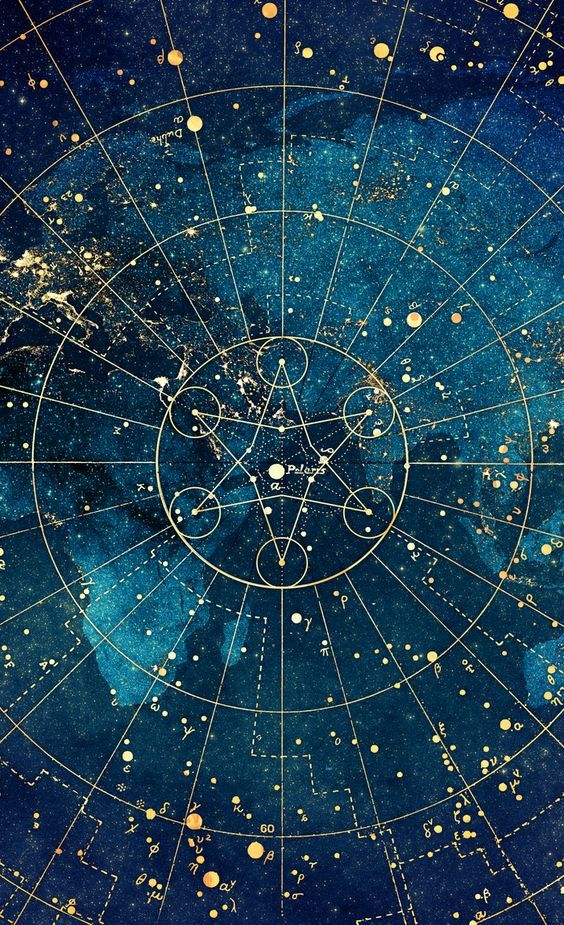
instagram
728 notes
·
View notes
Text
Phantom of the Opera, iirc, followed by Cats and Les Miserables. Listened to those all the way through college. Eventually got to see all of them on stage, too.
reblog if the first musical you listened to was not Hamilton
96K notes
·
View notes
Note
Don’t forget that most libraries can request Inter Library Loans (ILLs) too! Your local library can request books from any library in the country, they’re shipped to your library at no cost to you, and you check them out and return them as usual. It’s a great service that allows you to get just about anything, including books from academic libraries. If you don’t see it in your library district’s catalog, talk to your librarian- they’re capable of all kinds of magic!
This may be the most important thing I ever post here.
4K notes
·
View notes
Photo
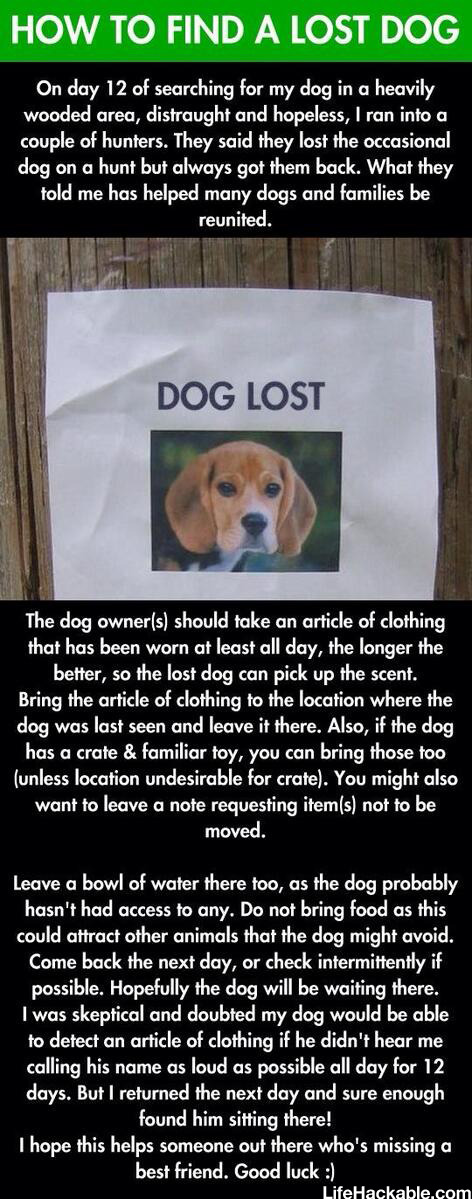
This is potentially life saving information everyone should know.
969K notes
·
View notes
Text
reblog if you are ASEXUAL, support ASEXUAL PEOPLE, or SECRETLY A DRAGON IN HUMAN FORM
155K notes
·
View notes
Note
Hi Neil! I know it's not too late (maybe? Idk!), but I haven't dove into The Sandman yet- but I'm intrigued (I know, where have I been all these years..)
What's the best thing about it? And what sets it apart from all your other works?
It’s longer: about 3000 pages, and it does things at epic length, while also being small and about stories and people.
1K notes
·
View notes
